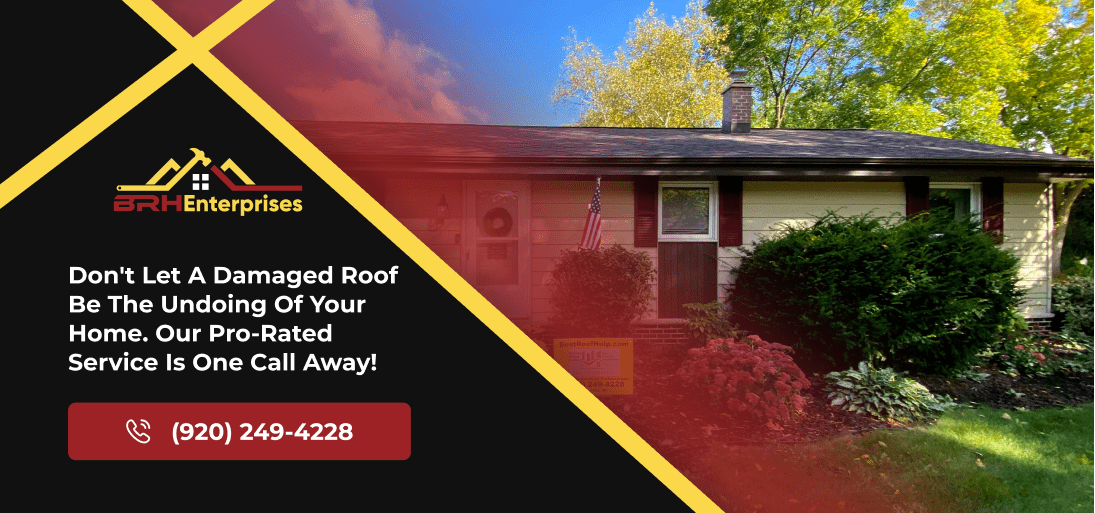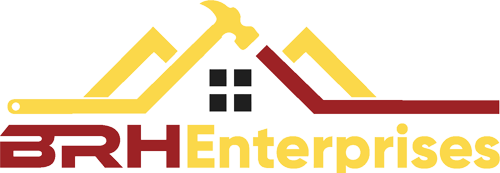How Long Does A Roof Inspection Take?
Estimated Reading Time : 5 Min.
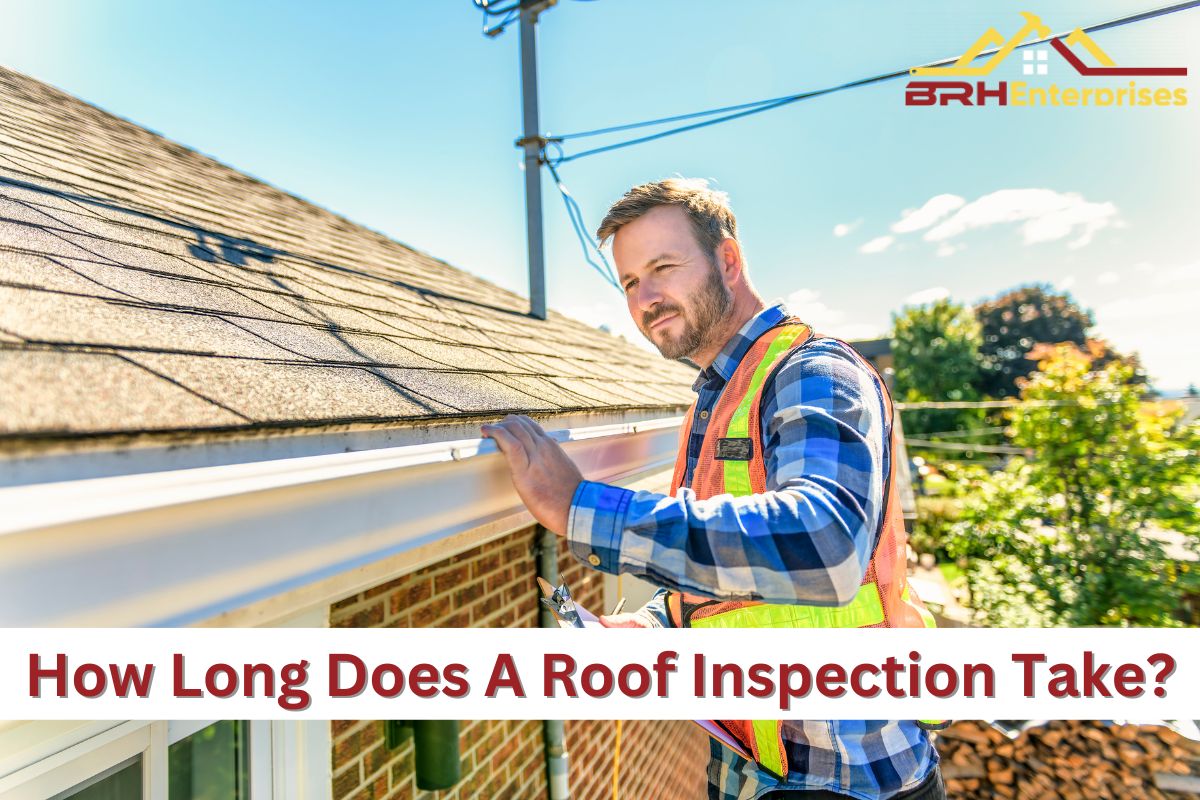
Your home’s roof is one of its most vital components, protecting you and your belongings from the elements. Regular roof inspections are crucial to ensure its longevity and detect issues before they escalate into costly repairs. One common question homeowners have is, how long does a roof inspection take?
In this comprehensive blog post, we’ll delve into the factors influencing inspection time and provide valuable insights into the duration of this essential maintenance task.
What Is The Typical Duration of a Roof Inspection?
A roof inspection typically lasts 45 minutes to 2 hours, depending on the accessibility, complexity, and size of the roof. Simple structures take about 1 to 2 hours, while complex ones, such as steep roofs on two-story homes, may require more time for safety measures. Commercial roof inspections can range from 30 minutes to 4 hours based on its size and type.
The assessment usually covers the roof, exterior of the building, and attic and is scheduled for various purposes like storm damage detection, pre or post replacement, or routine maintenance. Inspection duration is influenced by factors such as property size, roof type, and its intended purpose.
Factors Influencing How Long a Roof Inspection Takes
A roof inspection should be an extremely thorough process. Let’s delve in to understand the different factors that influence the amount of time it takes:
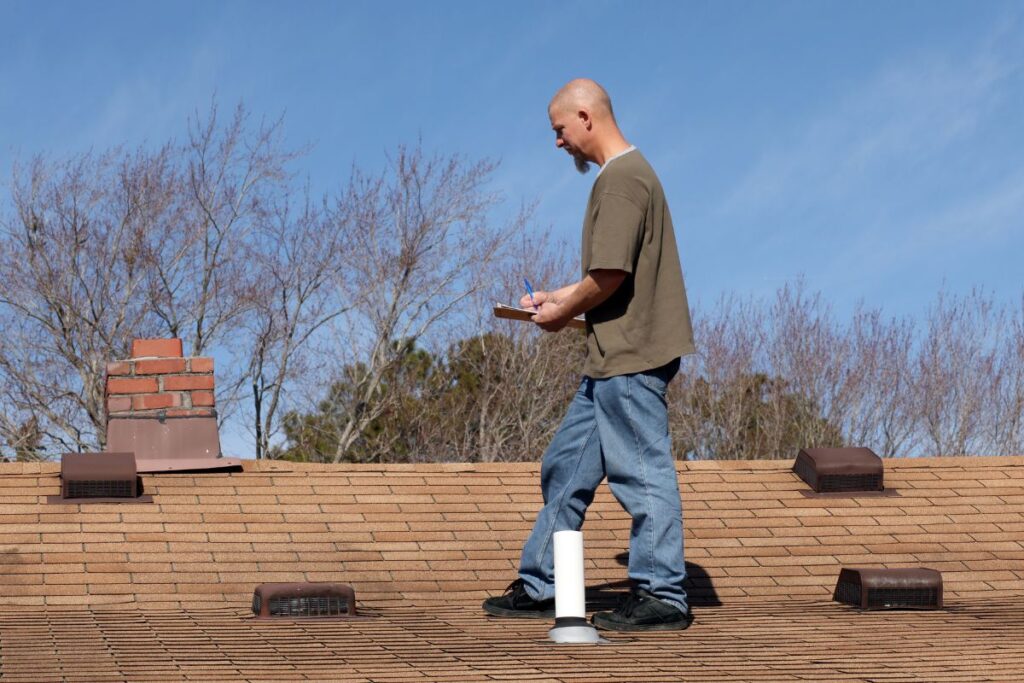
#1. Size and Accessibility of the Roof:
The size and accessibility of a roof directly impact inspection time. Larger roofs take longer due to their extensive surface area, while roofs that are challenging to access, like steep slopes, require additional time for careful navigation and examination.
#2. Roof Age and Condition:
Older roofs and those displaying visible damage necessitate more thorough inspections, influencing both duration and cost. Aging roofs often show signs of wear and outdated construction, requiring extra time for the assessment. Visible issues, such as leaks or missing shingles, usually require a detailed examination to determine the extent of necessary repairs.
#3. Local Climate and Environmental Factors:
Local climate conditions and environmental elements affect roof wear. Exposure to severe weather and the presence of debris, moss, or algae impact the roof’s condition, requiring a detailed and comprehensive evaluation.
#4. Inspector’s Approach and Expertise:
The inspector’s approach and expertise significantly affect inspection time. Different contractors may have different ways of conducting the inspection, resulting in varied timelines. This could include using high tech tools that streamline the process.
#5. Extent of Damage:
The severity of roof damage is a critical factor in the inspection time. Extensive damage requires additional time for documentation and evaluation, impacting both inspection duration and cost.
Types of Roof Inspections
There are different types of roof inspections that contractors offer. Some of them are:
1. Routine Roof Inspections:
Routine roof inspections are like doctor visits for your home. They are typically scheduled once a year to catch small problems with your roof early on. These checks, lasting around 45 minutes to a few hours, help keep your roof healthy and make it last longer by stopping minor issues from escalating.
2. Pre-Purchase Roof Inspections:
Before buying a house, it’s important to know about the roof’s condition. Pre-purchase inspections help buyers make smart decisions about the property they are interested in. These checks are part of the home-buying process and might take a bit longer to give a detailed assessment.
3. Post-Storm Roof Inspections:
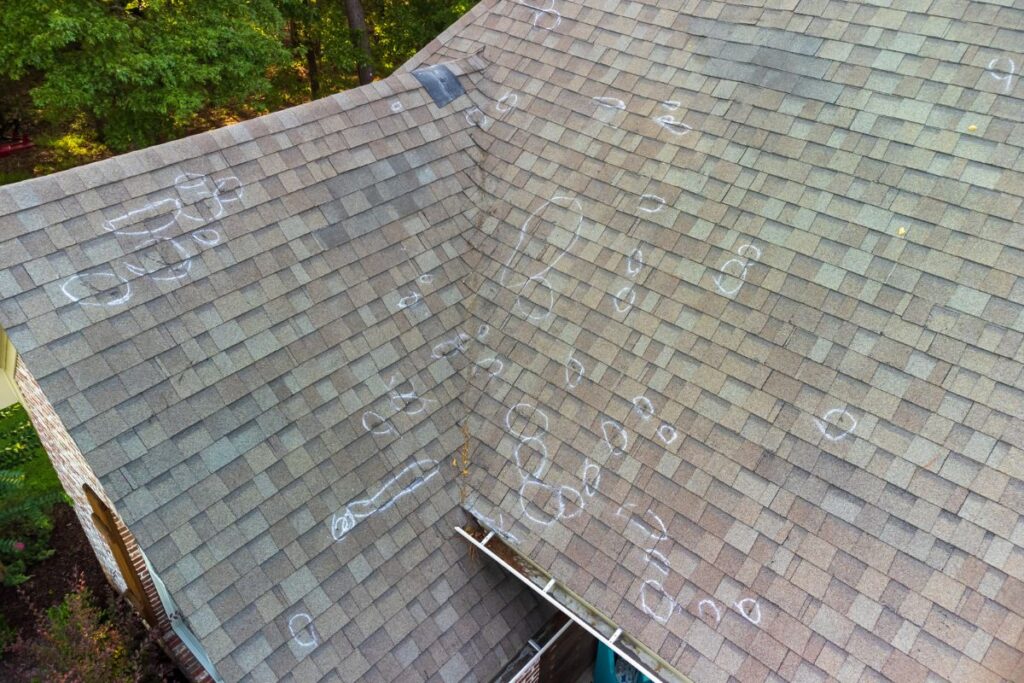
After a big storm, your roof needs a check to make sure it hasn’t sustained any damage. Post-storm inspections focus on finding any damage from strong winds, hail, or falling debris. They happen soon after the storm and can take a few hours to a whole day, depending on the damage.
4. Leak-Specific Roof Inspections:
If you think there’s a leak or see water damage, a special inspection can find exactly where the problem is. The time it takes depends on how tricky it is to find the origin of the leak. Usually, it takes a few hours.
5. Aging Roof Inspections:
As your roof gets older, it needs more attention. Aging roof check-ups look at the overall condition, finding any issues and deciding if fixes or a new roof are needed. These happen more often as the roof gets older and take longer because they look more carefully at the aging parts.
6. Solar Panel Roof Inspections:
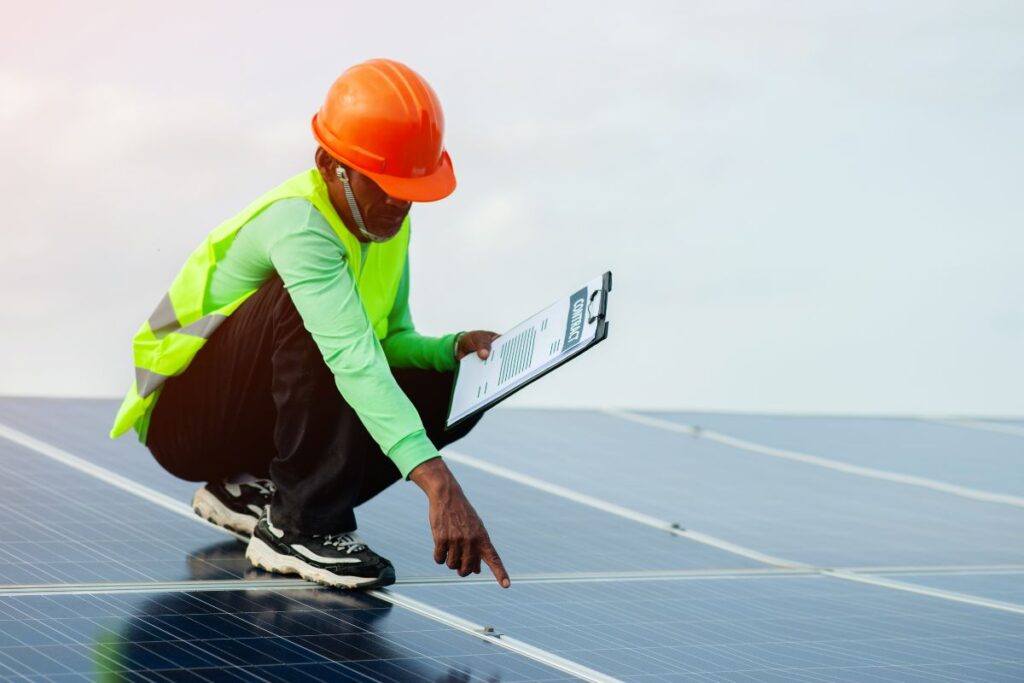
Homes with solar panels need special checks to make sure everything is working well. These inspections happen from time to time, especially after storms. The time it takes depends on how complicated the solar panel configuration is, and it might take longer if they need fixing or adjusting.
7. Drone Roof Inspection:
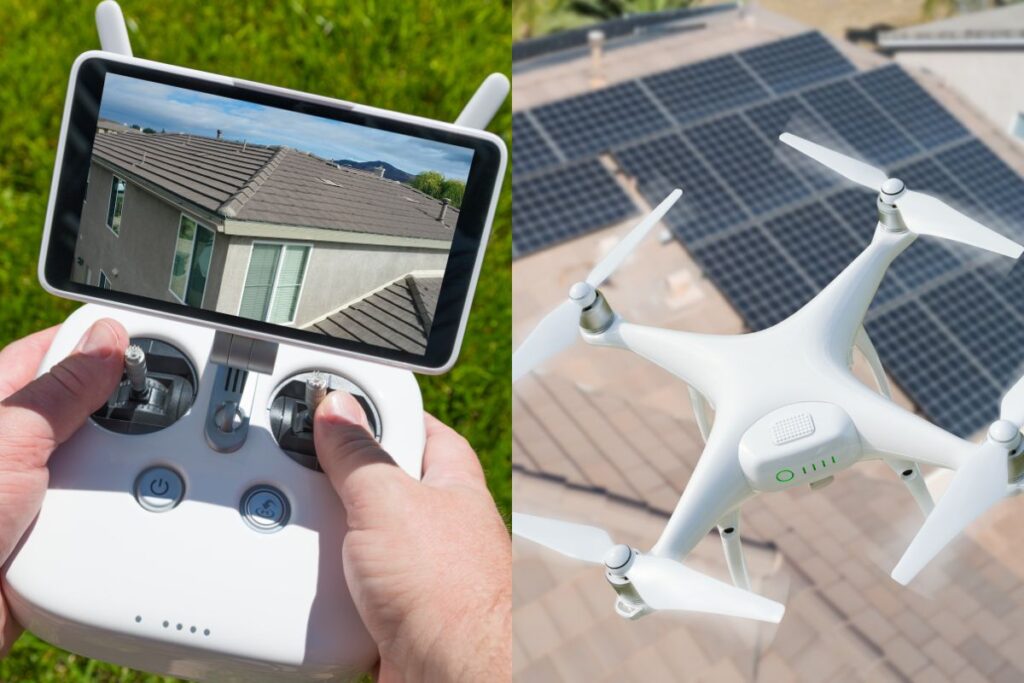
Drone roof inspections use quick, real-time, high-resolution imaging, transforming traditional methods. They boost efficiency, safety, and cost-effectiveness by offering precise measurements and revealing hidden structural issues. Ideal for planning repairs or installations, drone inspections find problems early, and cater to unique needs like those of historic structures. This technology provides an alternative to traditional inspections.
Why Are Roof Inspections Necessary?
Scheduling routine roof inspections is crucial for several reasons, including:
1. Maintaining Warranty:
Regular roof inspections are crucial to uphold warranty coverage. By promptly addressing issues, these inspections prevent you from voiding your material or workmanship warranty and offer continued peace of mind for homeowners.
2. Protecting Investment:
Roof inspections safeguard the significant financial investment in a property. Detecting and resolving issues early not only prevents major repairs but also extends the roof’s lifespan, preserving the overall value of the property.
3. Exposing Fire Hazards:
In wildfire-prone areas, expert roof inspections are essential for uncovering potential fire risks. These inspections identify and address issues like debris accumulation or leaks near electrical components, enhancing the safety of the home.
4. Identifying Weak Points:
Proactive roof inspections pinpoint vulnerable areas prone to damage. Early identification allows for timely repairs, preventing further deterioration and potential leaks, ultimately enhancing the roof’s resilience against environmental challenges.
Conclusion
The duration of a roof inspection varies based on several factors, from the type of roof to its size and unique characteristics. It’s crucial to allocate sufficient time for a thorough evaluation, as this directly impacts the accuracy of the findings. Rushed inspections may overlook potential issues, compromising the long-term health of the roof.
Schedule Your FREE Roof Inspection with BRH Enterprises!
Improve your home’s longevity with BRH Enterprises’ roof inspection services! Offering meticulous roof inspections, our expert team identifies issues such as wear, missing components, and storm damage. Schedule a free roof inspection today to address concerns promptly and prevent further damage.
As the best roof inspection company in Wisconsin, trust BRH for unmatched service. We will prioritize your roof’s well-being with precision and care. Secure your home – schedule your inspection today! Give us a call at (920) 249-4228.
